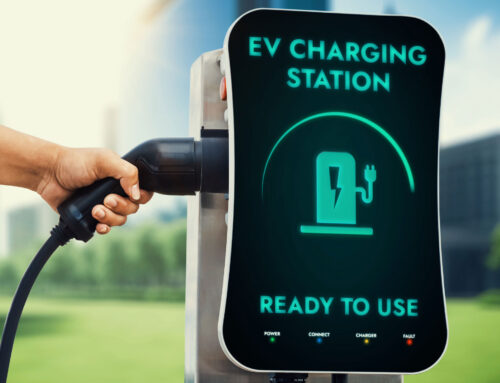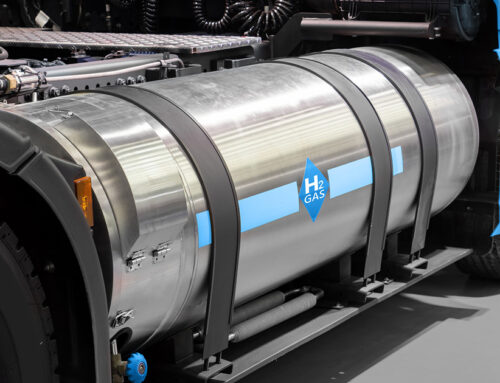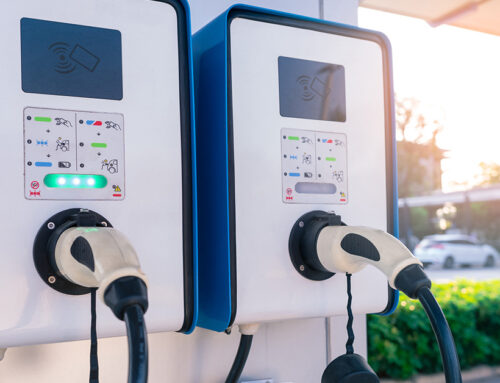According to the U.S. Department of Energy’s Alternative Fuel Data Center, medium trucks, heavy trucks, and buses consume 23 percent the nation’s domestic fuel supply.
The same source reports that medium trucks, heavy trucks, and buses use 48.09 billion gasoline gallon equivalents (GGE) per year. Nearly 5 billion GGEs of that are gasoline; a little more than 43 GGEs is diesel fuel.
What exactly does that mean for trucking companies and truck stops? A large carbon footprint–and tremendous potential for a free market solution to petroleum dependence.

For trucking companies and truck stop owners, there are two up-and-coming alternatives fuels to watch: electric and hydrogen fuel. Here’s what’s happening with both.
Alternative Fuel Trend #1 – Electric
In December 2018, Reuters reported that the electric truck market is supposed to grow at a compound annual growth rate between now and 2023.
How does that translate to the trucking industry? It means there will be 15% more manufacturing, deploying and using electric trucks in the next five years–if the rate and amount of current investment remains the same.
A few key factors are driving this unprecedented progress. Government regulations are looking to cut vehicle emissions. They’re also aiming to create infrastructure that would make smart transportation easier and cheaper. You may have noticed this trend has already taken hold in public transportation; for example, city buses and light rails.
From a truck industry perspective, fleet management is becoming increasingly more expensive. Electric trucks present a possible cost-effective way to cut down on towering fuel costs because they can be recharged or use a combination of fuel and electric power.
It’s important for truck stop owners and fleet management companies to learn the ins and outs of the electric truck market and its projected growth. Start by signing up to get a sample report of Market Research Future’sElectric Truck Market Research Report: Forecast to 2023.
Alternative Fuels Trend #2 – Hydrogen Fuel
Not everyone is on board with electric as the cure-all for petroleum-dependent trucking. At an annual conference hosted by Cambridge Energy Research Associates (CERA), some of the brightest minds in the energy sector argued that hydrogen fuel might be a better alternative fuel than battery-powered electric.
Energy experts pointed out, in terms of hydrogen’s benefits to the trucking industry, was its weight. Battery, by comparison, add quite a bit of weight to a heavy truck.
The international consulting group, McKinsey, analyzed hydrogen’s benefits and published a study called Hydrogen: The next wave for electric vehicles?
It honed in on seven roles hydrogen could play in decreasing carbon emissions and replacing fossil fuels as a major energy source. The study cites one particular role, decarbonizing transportation, that’s relevant to the trucking industry. Instead of arguing that hydrogen will completely replace petroleum or will be a better alternative than batteries, McKinsey advocates that it’d be best for hydrogen to “complement battery electric vehicles to achieve a broad decarbonization of transport segments.”
Follow Financial Fuel Services to Learn More About Alternative Fuels
Stay on top of cutting-edge trends in fuel production and consumption. Follow Financial Fuel Service’s Industry News page. We have our finger on the pulse of trucking, transportation, and fuel events, trends, and ideas.






